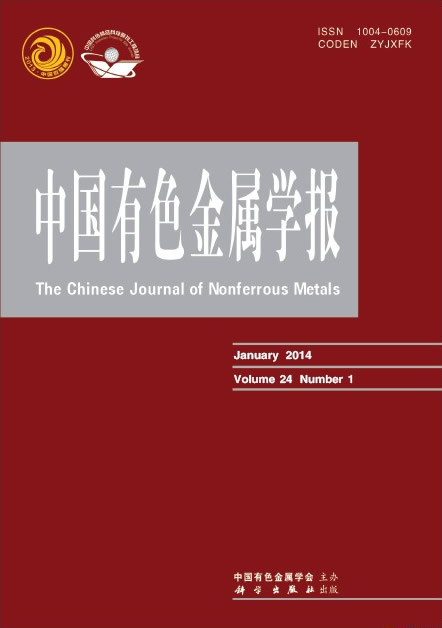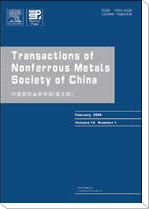(重庆大学 材料科学与工程学院, 重庆400044)
摘 要: 利用DTA和XRD分析技术对CaHPO4·2H2O-CaCO3和CaHPO4·2H2O-CaCO3-Y2O3 2种体系在加热过程中的相变机理进行了对比实验和研究。 结果表明: Y2O3对CaHPO4·2H2O-CaCO3混合体系在800℃以下的物理化学变化过程不产生影响; 但在900℃以上时, 稀土对HA生物陶瓷的原位烧结合成具有催化作用, 使反应合成的开始温度降低了134℃左右, 且增加了β-TCP和HA的高温稳定性, 使β-TCP向α-TCP发生晶型转变的温度提高约47℃, 使HA的分解温度提高约38℃。 这有利于生成更多的HA。
关键字: 原位合成; HA; 生物陶瓷; Y2O3
(College of Materials Science and Engineering,
Chongqing University, Chongqing 400044, China)
Abstract:On the basis of DTA and XRD measurements, the phases transformations involved in the processing of reactively in situ synthesis of HA were systematically analyzed. The results show that the addition of Y2O3 has no effect on CaHPO4·2H2O-CaCO3 mixed powders below 800℃. But when sintering temperature is higher than 900℃, the starting temperature of HA formation will be decreased by 134℃, the phase transformation temperature of β-TCP to α-TCP increased by 47℃ and the decomposing temperature of HA increased by 38℃. Therefore, Y2O3 is helpful to the in situ synthesis of HA.
Key words: in situ synthesis; HA; bioceramic; Y2O3


